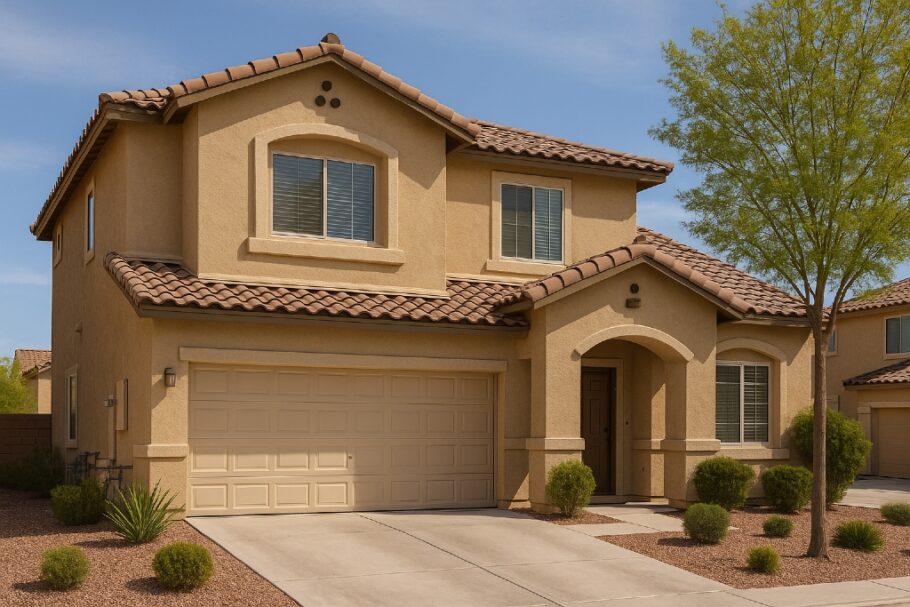Introduction
Stop right here – Vegas insider tip: Most visitors to this site will overpay by $727+ per trip to Las Vegas. Why? Because they don't have the secrets and tips to keep expenses low in Vegas while having a good time. Want the complete playbook for traveling like a Vegas local? Click here to save money on Vegas trips
Buying commercial property in Las Vegas has never been more appealing for investors, entrepreneurs, and corporations seeking a strategic foothold in one of the fastest-growing cities in the United States.
With its booming tourism sector, expanding professional sports scene, and diversified economy, Las Vegas offers strong demand for retail, office, industrial, and hospitality properties.
In 2025, the commercial real estate market remains competitive yet full of opportunity for those with the right investment strategy. This guide provides a comprehensive overview of the commercial property market in Las Vegas, including trends, property types, financing options, and insider tips to help you make informed buying decisions.
Why Invest in Las Vegas Commercial Real Estate?
- Tourism-Driven Economy: Over 38 million annual visitors fuel demand for retail, dining, and entertainment spaces.
- Favorable Tax Environment: Nevada offers no state income tax and relatively low property taxes.
- Growing Population: A steady influx of new residents supports both commercial and residential development.
- Sports & Entertainment Boom: Major sports teams and events drive demand for hospitality and mixed-use developments.
- Strategic Location: Las Vegas is a logistics hub for the Southwest, boosting industrial and warehouse demand.
Types of Commercial Properties in Las Vegas
Retail Properties
From high-traffic Strip locations to suburban shopping centers, retail spaces benefit from both local and tourist spending.
Office Buildings
Stop right here – Vegas insider tip: Most visitors to this site will overpay by $727+ per trip to Las Vegas. Why? Because they don't have the secrets and tips to keep expenses low in Vegas while having a good time. Want the complete playbook for traveling like a Vegas local? Click here to save money on Vegas trips
Class A office space is in demand among relocating companies, while smaller offices serve local businesses and startups.
Industrial & Warehouse Facilities
E-commerce growth has increased demand for distribution centers and logistics hubs.
Hospitality Properties
Hotels, resorts, and boutique accommodations thrive in a city with constant visitor flow.
Mixed-Use Developments
Combining retail, office, and residential spaces to create dynamic urban environments.
Prime Commercial Areas in Las Vegas
- The Strip: High visibility and foot traffic for retail, dining, and entertainment.
- Downtown Las Vegas: Revitalization projects attract tech companies, restaurants, and cultural venues.
- Henderson: A growing suburban market with strong demographics for retail and office spaces.
- North Las Vegas: Affordable land and industrial development opportunities.
- Southwest Valley: Expanding area with a mix of retail, office, and industrial properties.
Market Trends in 2025
- Rise of Experiential Retail: Spaces that offer unique customer experiences are outperforming traditional retail.
- Flexible Office Spaces: Demand for co-working and hybrid office layouts continues to grow.
- Sustainability in Development: Energy-efficient buildings and green certifications attract tenants and investors.
- Technology Integration: Smart building features improve tenant satisfaction and operational efficiency.
Steps to Buying Commercial Property in Las Vegas
1. Define Your Investment Goals
Decide whether your focus is on cash flow, long-term appreciation, or a mix of both.
2. Research the Market
Analyze property values, vacancy rates, and rental demand in your target area.
3. Assemble Your Team
Work with a local commercial real estate broker, attorney, and financial advisor.
4. Secure Financing
Explore financing options, including commercial loans, SBA loans, and private funding.
5. Conduct Due Diligence
Review zoning laws, environmental reports, tenant leases, and building inspections.
6. Negotiate the Deal
Leverage market data and property performance metrics to negotiate favorable terms.
7. Close the Purchase
Ensure all legal and financial requirements are met before finalizing the deal.
Financing Options
- Traditional Commercial Loans: Offered by banks and credit unions with fixed or variable rates.
- Small Business Administration (SBA) Loans: Ideal for owner-occupied properties.
- Private & Hard Money Lenders: Faster approval but higher interest rates.
- Seller Financing: Negotiated directly with the property owner for flexible terms.
Risks and Considerations
- Market Volatility: Commercial property values can fluctuate with economic changes.
- Tenant Turnover: Vacancies can impact cash flow and long-term profitability.
- Maintenance Costs: Larger properties come with higher upkeep expenses.
- Regulatory Changes: Zoning or licensing adjustments can affect property use.
Tips for Successful Investment
- Target High-Demand Areas: Locations with strong demographics and economic activity tend to perform better.
- Evaluate Tenant Quality: Long-term, reliable tenants reduce vacancy risk.
- Diversify Your Portfolio: Spread investments across different property types to reduce risk.
- Stay Informed: Monitor market trends, economic indicators, and local developments.
Long-Term Outlook
The Las Vegas commercial real estate market is expected to maintain strong fundamentals through 2030, driven by steady population growth, tourism, and corporate investment. Properties in prime locations with strong tenants are likely to see consistent appreciation and income potential.
Conclusion
Buying commercial property in Las Vegas in 2025 offers a wealth of opportunities for investors who understand the market and plan strategically.
Whether your focus is on retail, office, industrial, or hospitality assets, the city’s unique blend of tourism, economic growth, and favorable tax policies provides a solid foundation for long-term success.
With the right property, location, and investment approach, commercial real estate in Las Vegas can deliver impressive returns for years to come.






